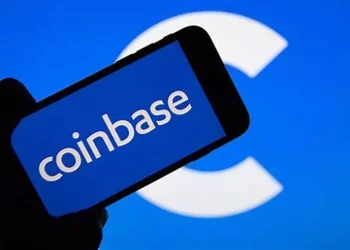The Manta Network, a zero-knowledge L2 blockchain, has come under intense scrutiny amidst accusations of money laundering in South Korea on the day of its listing on major cryptocurrency exchanges, including Binance, Bithumb, and KuCoin. Allegations specifically point to money laundering activities conducted through the Bithumb exchange, coinciding with a Distributed Denial-of-Service (DDoS) attack on the Manta Network on the same day.
Money Laundering Suspicions Surround Manta Network
Concerns have arisen over the Manta Network’s potential involvement in money laundering, triggered by a significant transaction on the day of its listing on Binance. According to reports from X by Definalist, a prominent figure in South Korea’s decentralized finance (DeFi) space, approximately 2 million MANTA tokens were transferred to the personal wallet of MANTA’s Korean Business Development (BD) representative.
The subsequent deposit of these tokens into a Bithumb wallet accounted for more than 75% of the exchange’s total circulation volume at that time. Within a mere five minutes of listing, the price of MANTA on Bithumb surged to an unprecedented $230, marking a staggering 100x increase from its initial opening price of $2.26.
The situation took a suspicious turn as the Korean BD allegedly liquidated all 2 million MANTA tokens at a premium ranging from 50 to 100 times the listing price. The resulting proceeds, amounting to $5.16 million, were purportedly converted into 2094.7 Ethereum (ETH), which were then transferred to the BD’s personal wallet, as per transactions on Etherscan.
South Korea, renowned for its stringent regulations on money laundering and financial transactions, could impose severe penalties if these allegations are substantiated. The BD’s actions have raised serious concerns within the cryptocurrency community. However, Manta Network has refuted these claims, asserting its commitment to transparency and legality.
The network clarified its project plans, highlighting the establishment of a branch in South Korea. The allocation of part of the community funds to the Korean BD was explained within the token economic model. Additionally, Manta Network revealed intentions to set up a branch in Hong Kong to further expand its presence in Asia.
DDoS Attack Adds to Manta Network’s Challenges
Following the successful listing on Binance, Manta Network faced a significant Distributed Denial-of-Service (DDoS) attack. Kenny Li, Co-Founder of p0x labs, the cryptographic development team associated with Manta Network, shed light on the incident. He reported that the blockchain’s nodes endured over 135 million remote procedure call (RPC) requests on January 18, characterizing the DDoS attack as both ‘aggressive’ and ‘timed.’
Li emphasized that despite the intensity of the attack, the blockchain maintained secure operations, ensuring the safety of all funds. However, he acknowledged a notable impact on communication between applications and the blockchain.
In the aftermath of the DDoS attack, the Manta crypto experienced a pullback. At press time on Friday, January 19, the Manta crypto’s price stood at $2.13, reflecting a 6.09% decline. Its market cap was recorded at $534.93 million, with a significant surge in trading volume, exceeding $1.2 billion worth of Manta traded on the first day. The situation continues to evolve as regulators and the crypto community closely monitor developments surrounding Manta Network.















